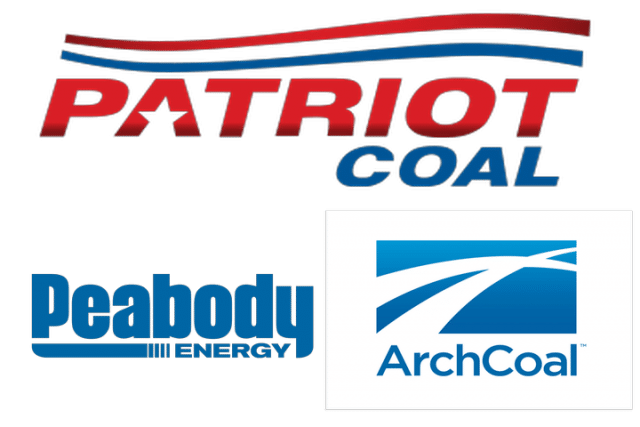On January 29, Patriot Coal Co. will begin Chapter 11 bankruptcy hearings in St. Louis, MO claiming that it’s become a “victim of the markets” and can no longer pay its debts. These “debts” include millions of dollars of retiree health benefits. If the company goes under, the benefits may go along with it.
That’s why the United Mine Workers of America (UMWA) is suing. Filed back in October, the lawsuit cites the Employee Retirement and Income Securities Act, which states that coal companies must provide health insurance for retired miners.
However, the UMWA isn’t suing Patriot Coal.
Most of the 10,000 workers in the class action lawsuit have never actually worked for Patriot. They actually put in their time (many with upwards of 30 years of service) with Peabody Energy Corp. and Arch Coal Inc. The UMWA contends that Peabody and Arch sold off the benefits to a company that was doomed to fail, therefore getting rid of the debt and leaving thousands without health insurance.
Patriot Coal is a company that was “spun-off” from Peabody back in 2007, meaning it severed off from the main company and became its own entity. During the spin-off, Patriot acquired a couple of Peabody’s mines and millions in retiree debt. Then, in 2008, Patriot acquired another company, then called Magnum Coal, which was originally spun off from Arch a few years previously. By the end, Patriot Coal wound up with more retired miners than active ones and filed for bankruptcy. In total, $557 million from Peabody, $500 million from Magnum (Arch), and now $1.3 billion in total debt.
And wouldn’t you know, Patriot is being asked to be released from its financial obligations.
This is why the current lawsuit is against Peabody and Arch. The retiree benefits were originally their responsibility. Now that Patriot is going under, Peabody and Arch should reabsorb that responsibility. If the coal companies win, it could set a precedent for other coal companies to exploit a legal loophole and shed millions in obligations to their employees.
Naturally, Peabody and Arch are looking to dismiss the case. Vic Svec, a spokesperson with Peabody told the Charleston Gazette that, “Patriot was a completely viable company when it was spun off in 2007.” Arch has offered similar sentimentality, stating they had no stake in the decision process when Patriot decided to purchase Magnum, despite the fact that Magnum originally broke off from Arch in the first place. According to them, the real culprits of Patriot’s decline include more environmental regulations, natural gas’ competition with coal (and cheap prices), and global markets.
Patriot filed for bankruptcy in the state of the New York, despite the fact that the mines are in West Virginia. Apparently, Patriot created two dummy corporations in New York so it could file there, a state known to be “more friendly to corporations in bankruptcy cases”. This would also bring the case farther away from where the actual industry resides.
In a win for the miners, the residing judge, U.S. Bankruptcy Judge Shelley Chapman, ruled that the suit should be moved back to St. Louis, where Peabody, Arch, and Patriot all are headquartered. The miners had appealed to the NY court with “… hundreds of hand-written letters have been received by the Court from the people whose hands mine the Debtors’ coal and their widows and children. Many of them enclosed family pictures, or lists of ailments and medications. “
Coal mining is no easy trade, and many workers need the health insurance. The work can be massively debilitating to the body, and many workers find they need surgery and medical attention after years on the job, if work-related injuries didn’t require them to retire in the first place. There’s wear and tear from working with heavy loads, toxic materials, and other strenuous activities over decades. There’s also the possibility of contracting Black Lung Disease from breathing in coal dust or other forms of cancer.
The UMWA‘s campaign, Fairness at Patriot, highlight’s a couple of workers’ ailments and their needs for the insurance. They are also running TV spots in St. Louis, where the bankruptcy hearings will continue, trying to highlight the fact that these “liabilities” that Patriot, Peabody, and Arch are trying to dismiss have consequences for actual people and are not just numbers on a shareholder’s report.
KSDK Channel 5 of St. Louis, MO reports:
“These are people who worked for Peabody their whole lives, they retired from Peabody; they never worked a day for a company called Patriot Coal,” said Phil Smith, spokesman for United Mine Workers of America. “Another 20 percent of them only worked for Arch Coal. They never worked a day for Patriot. They don’t understand how it is that a company that promised them that they would have healthcare all of a sudden doesn’t have to live up to that promise.”
Subscribe to our newsletter
Stay up to date with DeSmog news and alerts






